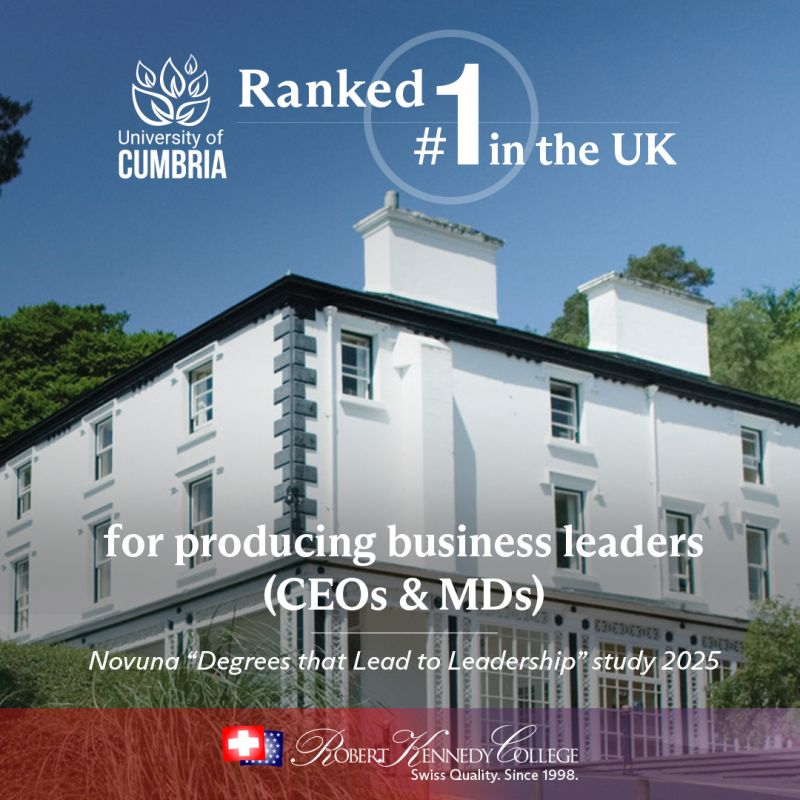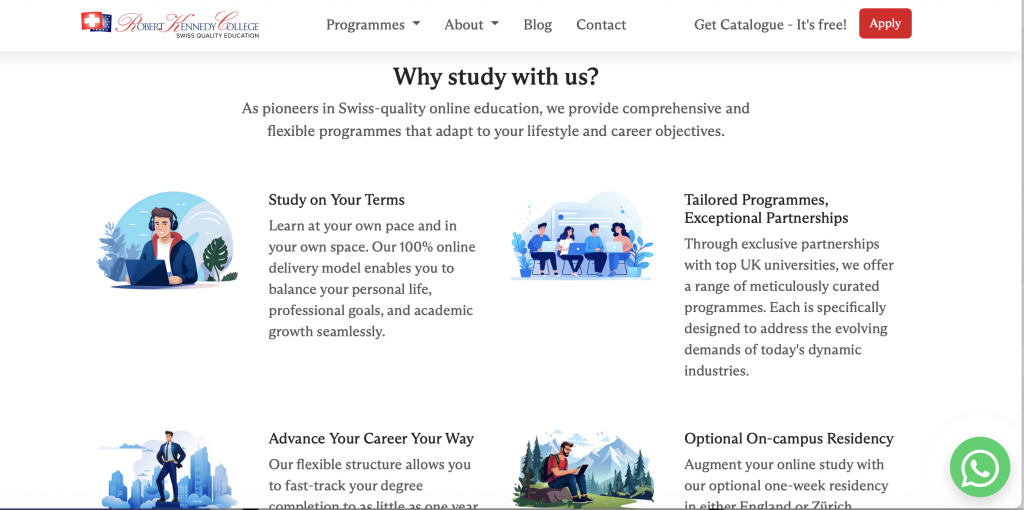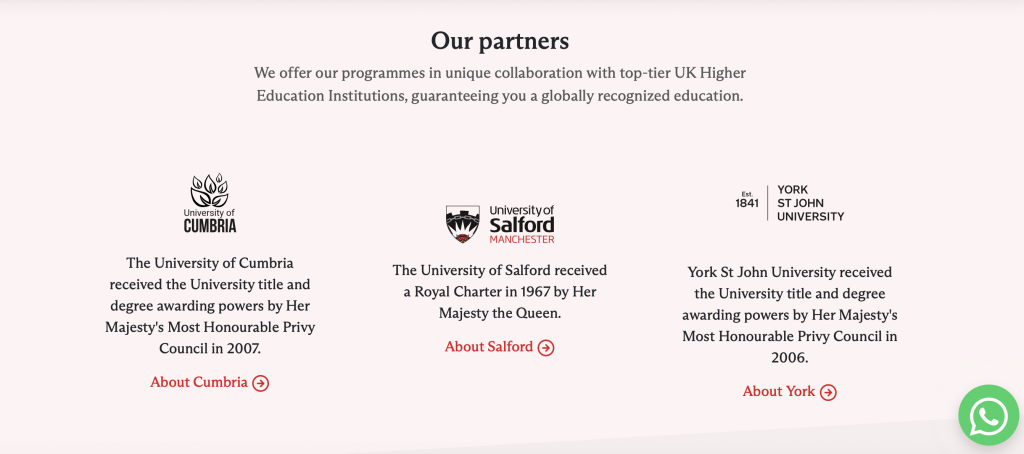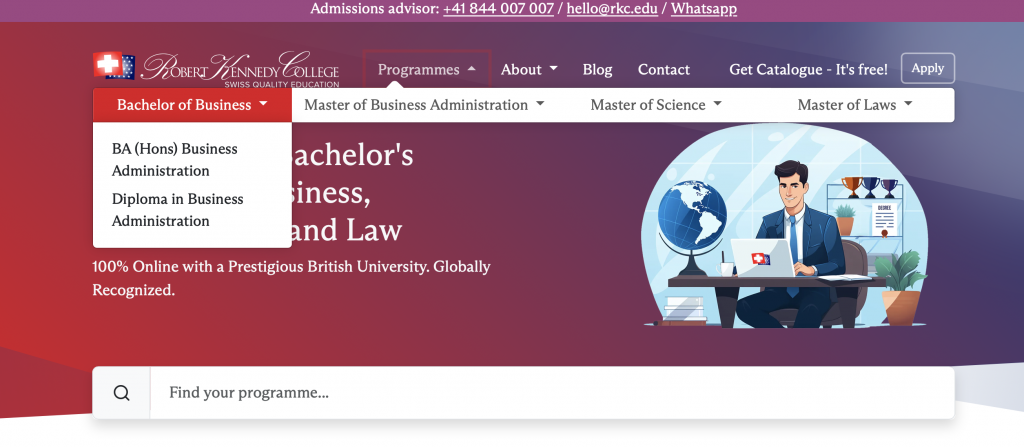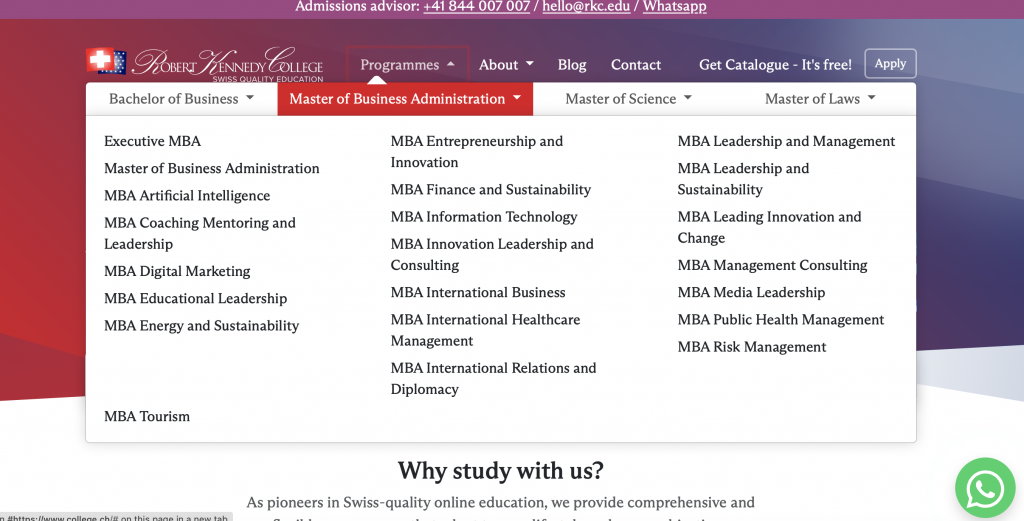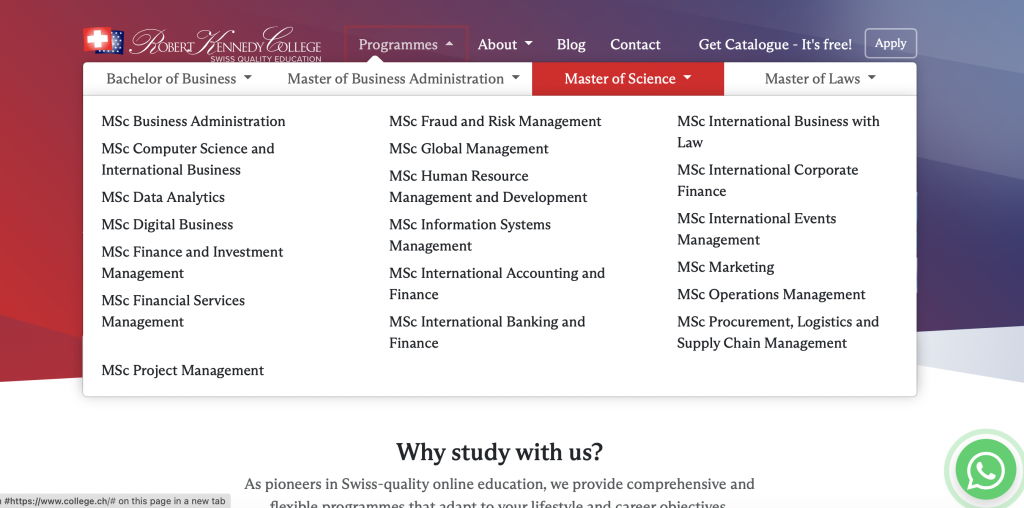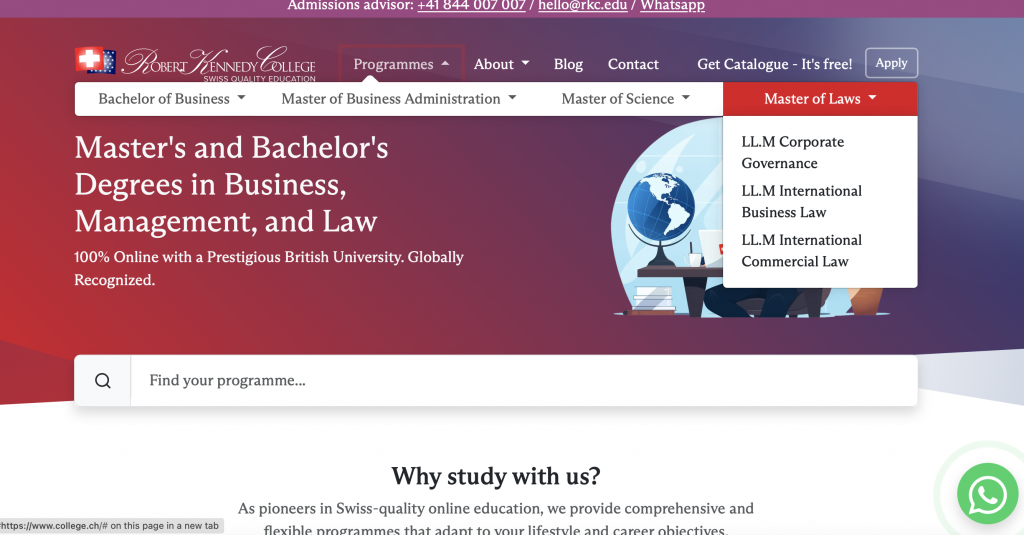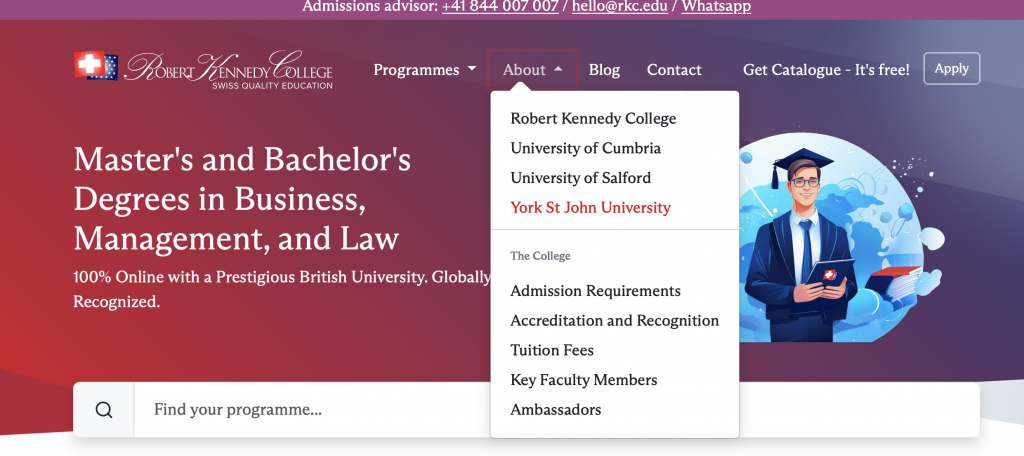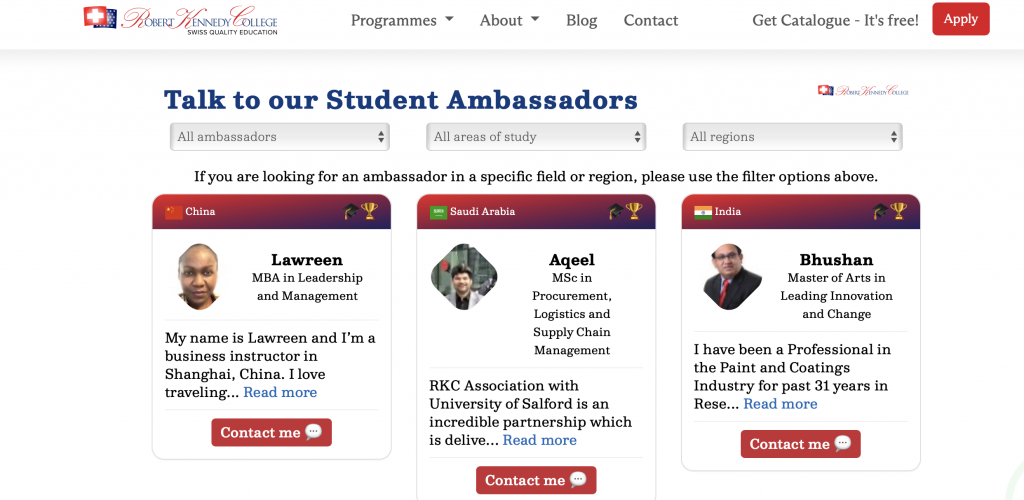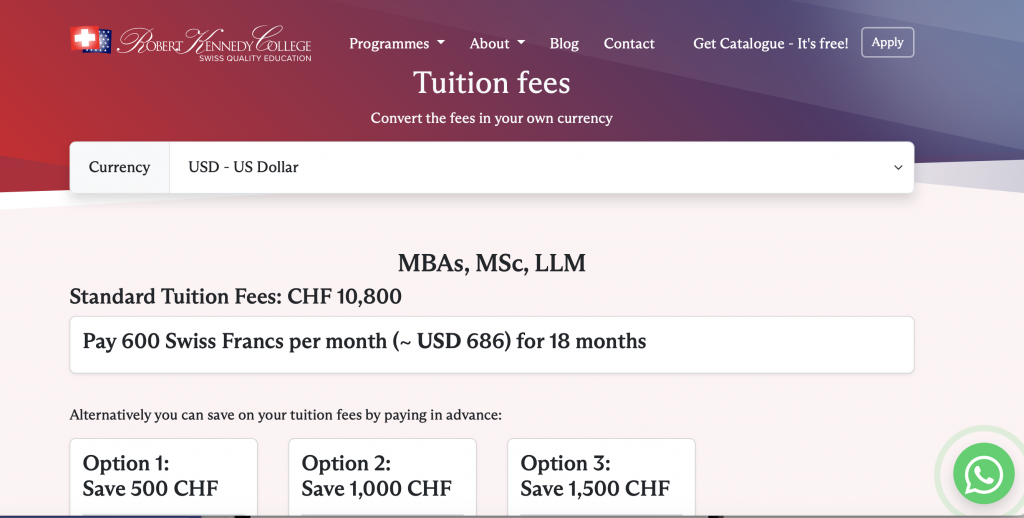In the first part of this blog series, Birgitta – an MBA in Leadership and Sustainability student at Robert Kennedy College reflected on the inspiration behind choosing the program and the initial impressions of its unique, purpose-driven approach. Now, in Part Two, the focus shifts to the realities of navigating the program—beyond the curriculum and into the lived experience of balancing academic ambitions with personal and professional responsibilities.

This instalment explores the challenges she encountered along the way, particularly in managing time effectively as a remote learner juggling multiple commitments. It also highlights the support structures and digital resources provided by the College, which proved essential in staying on track. From leveraging peer collaboration to accessing academic guidance, Birgitta shares how the online learning environment became both a challenge and a catalyst for growth.
As the journey progressed into the demanding dissertation phase, the experience deepened—not only in academic rigor but also in clarity of purpose. Birgitta reflects on how the program has shaped their vision for the future, preparing them to lead with confidence, adaptability, and a stronger sense of direction in a world that increasingly values sustainability and ethical leadership.
Let’s continue to hear Birgitta’s story:
What were the biggest challenges you faced while studying online?
My biggest challenges during my studies were related to writing, especially mastering the Harvard style, as I don’t consider myself a good writer in general. At times, I longed for the opportunity to ask questions and solve issues immediately, but I also understand that an academic degree requires independent problem-solving.

Were there specific resources or support systems that helped you overcome these challenges?
University of Cumbria’s instructions helped me solve challenges and develop my writing skills. I also recognised academic writing styles and models from the studies I read during my studies, and I gradually internalised the Harvard citation style.
To avoid typos, I used the free version of Grammarly. At the same time, I had to be careful, as automatic assistants, such as Word’s own spell checker or autopilot, can easily change the original context of the text. I had to pay special attention so they would not mess up the Harvard style formatting.
Did you participate in any online study groups or forums? If so, how did they contribute to your learning experience? Was it easy or difficult to engage and participate?
I actively participated in every course’s online discussion forum, following the instructions and discussions of both the class and the professor. It was a useful and effective way to learn. I did not participate in any study groups or other similar activities.
Were there additional resources (e.g., online libraries, tutoring services) that you found particularly helpful?
I found several resources particularly helpful:
- Google Scholar and related databases
- The University of Cumbria electronic library
- Emerald Insight publishing
- ScienceDirect literature
- Taylor & Francis Online library
- Google libraries

My dissertation topic was subconsciously clear to me from the beginning of my studies, and it took definite shape as I progressed. I wanted my dissertation topic to address the most pressing and widely discussed needs within working life. However, even with such an inspiring topic, the writing process itself was challenging due to the vast amount of data I found to utilise.
Once I had a clear structure and scheduled my interviews, the process took about six months in total. I spent the first three months on the initial part of the paper and the following three months on conducting the research and finalising the dissertation. It required very meticulous and structured time management on my part.
How has your online education prepared you for your future career?
Online learning demands a high degree of discipline and self-motivation. Without a physical classroom, I was solely responsible for managing my time, meeting deadlines, and staying on track with my studies. This has strengthened my ability to work independently, a crucial skill in any professional setting. The experience has taught me how to be proactive and take ownership of my tasks and projects.

The entire process required me to become highly proficient with various digital tools and online platforms for research, collaboration, and communication. I honed my skills in using virtual libraries, academic databases, and video conferencing software. This experience has made me comfortable and effective in a remote or hybrid work environment.
Participating in online discussions with a diverse group of international students and professors exposed me to different perspectives and working styles. This experience has significantly improved my ability to collaborate and communicate effectively across cultural boundaries, a skill that is essential in today’s globalised workplace.
Advice for Future Students:
What advice would you give to new students starting their journey at an online university?
Don’t Give Up
Most importantly, remember that no matter what, you should never give up. This journey will be one of the most fulfilling experiences of your life. Enjoy the ride!
Are there any strategies or tips you found particularly useful that you would recommend to others?
Don’t stress. A calm and focused approach allows you to better internalise the material. Structure – time – managing oneself!
In the end, the dissertation journey was far more than an academic requirement—it was a test of resilience, a lesson in perseverance, and a powerful reminder of the value of support systems. The challenges were real, but so were the moments of growth, discovery, and quiet triumph. As an RKC student, I found strength not only within myself but also through the unwavering encouragement of mentors, peers, and family. Staying the course wasn’t easy, but it was worth every step. For those still navigating their own paths, know this: resilience is built one decision at a time, and with the right support, success is not just possible—it’s inevitable.
If you’ve been inspired by this journey and are ready to take the next step in your own academic and personal growth, consider applying for an online Master’s program with RKC and start shaping your future today.






